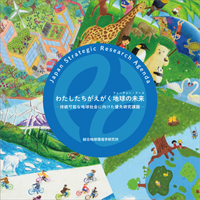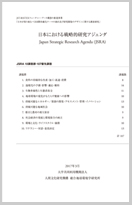Co-design and stakeholder engagement according to geographical scales
ONISHI Yuko
RIHN Center
Booklet(PDF)
Japan Strategic Research Agenda, 107 priority questions under 10 themes, identified by the general public, local governments, and industries as well as researchers.

List of research questions(PDF)
To solve the global environmental problems, it is important that the stakeholders affecting or being affected by the problems work together to find solutions. Researchers in environmental science are increasingly adopting the research co-design methods by which they collaborate with the stakeholders in developing research plans. The strength of RIHN’s research lies in its focus on the research co-design, whereby the researchers work with the local communities to develop a research plan. Internationally, Future Earth, an international research platform for global sustainability started in 2015, has been facilitating co-design in global environmental research. Future Earth identified 62 priority research questions through a multi-stakeholder workshop in its Strategic Research Agenda. In Japan, 107 priorities were identified in “Japan Strategic Research Agenda (JSRA)” through consultations and a workshop with the public, local governments, and the industries. Global Research Projects and Knowledge Action Networks as well as the National Committees of Future Earth are setting out to following agenda setting exercises.
However, research co-design has mostly been practiced at the local scales and large scale examples remain few and experimental. Compared with the local scale studies, the “stake” of stakeholders may be weak or indirect, or a large number of stakeholders may be of concern at the national and global scales. Thus, the scale affects the nature of stakeholder engagement and co-design processes.
This Core Project aims at developing a methodology for co-design and stakeholder engagement according to the geographical scales. The project collects, analyses and classifies co-design methods while compiles important research questions for India by adopting a co-design process in JSRA.
▲PAGE TOP